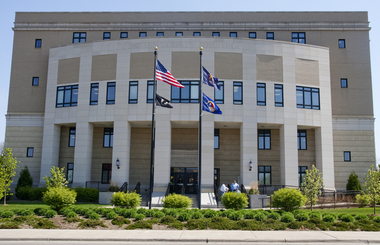MISDEMEANOR PROBATION VIOLATION.
Probation violations are frequent in Michigan District Courts. In most courts, defendants risk additional sanctions, including  jail, at the time of the probation hearings. The Michigan Probation Violation statutes, MCL 771.1 and MCL 771.3, detail the ability of the District Court to impose probation conditions. After being placed on probation, District Courts have the ability to modify or revoke your probation, per MCL 771.4.
jail, at the time of the probation hearings. The Michigan Probation Violation statutes, MCL 771.1 and MCL 771.3, detail the ability of the District Court to impose probation conditions. After being placed on probation, District Courts have the ability to modify or revoke your probation, per MCL 771.4.
(Read more: Minor in Possession of Alcohol)
If the District Court alleges that you have violated your probation, you can request a hearing, where the prosecutor would have to prove a preponderance of the evidence that you violated your probation.
A probationary sentence in Michigan will vary widely based upon the rehabilitative needs of the probation. There are several conditions of probation that are required pursuant to MCL 771.3(1):
(Read more: Felony Possession of Narcotics)
1. Do not leave the state without permission from the Court;
2. Must make truthful reports to the probation officer, either in writing or in person, monthly, or as often as the probation officer requires;
3. No violations of any state criminal law, or any ordinance of any municipality in the state;
4. Notify probation immediately of any change of address;
5. Notify probation immediately of any change of employment;
6. Pay any assessed costs or fines
7. Pay restitution to the victim;
8. Sex Offender Registration if the Defendant is required to register under the Sex Offenders Registration Act.
(Read more: First Offense, Drunk Driving)
There are other probationary terms that are not mandated by Michigan statutory law, but some of the following are often imposed by Courts:
1. Alcoholics Anonymous (AA) attendance or rational recovery
2. Alcohol testing;
3. Alcohol treatment;
4. Anger management;
5. Behavior modification program;
6. Community service work;
7. Curfew;
8. Domestic violence offender treatment;
9. Drug testing;
10. Drug treatment;
11. Education such as high school, GED, vocational training;
12. Electronic monitoring such as a tether, GPS tether, or a SCRAM tether;
13. Fines, costs, and reimbursement of county expenses;
14. Gamblers Anonymous attendance
15. HIV testing;
16. House arrest
17. Income withholding order to pay any fines, costs, assessments, restitution directly from the offenders pay check;
18. Ignition interlock device for automobile;
19. Incarceration;
20. Incarceration/Jail programs to address behavior or drug issues;
21. Mental health evaluation;
22. Mental health treatment,
23. Narcotics Anonymous (NA) attendance
24. No assaultive or threatening behavior;
25. No computer or the internet;
26. No contact with the codefendant(s) if any;
27. No contact with known felons;
28. No contact with the victim;
29. No possess of a firearm or other deadly weapon;
30. Not able to work as a cashier or position where come into possession of other peoples money;
31. Not allowed to be alone with minor children;
32. Prohibition from going to certain locations such as bars, the place where the offense occurred, the victim’s house, places frequented by children, etc.
33. Recovery for police and fire expenses in drinking and driving offenses;
34. Restriction on driving privileges;
35. SAI probation boot camp;
36. Take medication as prescribed;
37. Vehicle immobilization;
38. Victim impact panel;
39. Work release;
40. Written essay concerning issue relevant to offense;
At Rudoi Law, we know how to fight Misdemeanor Probation Violation charges. We will present the serious, aggressive defence you need. Our experience with the local legal environment can help us define a legal strategy that works best for you and your need for a fair and fast resolution.
GET REPRESENTATION NOW


